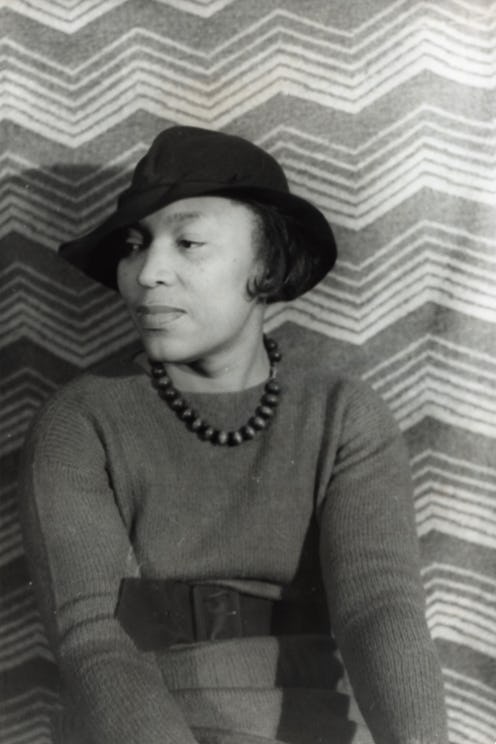Books
Happy Birthday, Zora

As any of you who have Googled anything in the last 17 hours knows, today would have been novelist Zora Neale Hurston’s 123rd birthday. And while Google’s commemoration, a doodle of the poised author flanked by the swampland of her native Florida, seems like a little thing — Google does similar tributes often, and Hurston is on enough high school syllabi to have widespread recognition — it is, in fact, a remarkable event, given Hurston’s history.
Today she is one of the most celebrated African-American authors, but the trailblazing author from Florida was almost lost to history. Even after publishing several novels, including her most famous work Their Eyes Were Watching God, Hurston died in 1960 in obscurity and remained largely unknown until 1975, when feminist activist and writer Alice Walker published “In Search of Zora Neale Hurston" in Ms. magazine In the article, Walker bemoans the sorry state of Hurston’s reputation, using a highly charged and affecting description of Hurston's neglected grave site to do so:
It was impossible for me to cry when I saw the field full of weeds where Zora is. Partly this is because I have come to know Zora through her books and she was not a teary sort of person herself; but partly, too, it is because there is a point at which even grief feels absurd. And at this point, laughter gushes up to retrieve sanity.
At a moment when movements for African-American and women’s rights had gained momentum, Walker's article brought renewed attention to Hurston's work, to the point that it eventually made its way onto high school reading lists.
I first encountered Hurston in 11th grade, reading Their Eyes Were Watching God in an English class. I would like to be able to say that I understood this book’s artistic and cultural significance, but unfortunately, I did not. Janie’s personal experiences, many of which revolve around the themes of race and gender, did not resonate with me. I was a 16-year-old white teenager from the suburbs, attending a prep school that was overwhelmingly white. And I didn’t feel my femaleness undermined my future potential.
I was also a snob. Why read dialect when you can read the elegant sentence of Austen or James? I thought. (This is a problematic and highly loaded notion, I know.) In short, my 16-year-old self didn’t understand this book, or the larger social reasons that make it a brave and innovative novel, and I don’t think I’m alone on this.
It was not until college that, thanks to academic courses and politically conscious friends, I came to understand structural racism and how biases permeate the literary world. That literature, which by its very nature strives for truth and authenticity, can be vaulted or cast aside by the judgement of warped societal prejudices is a terrible, heart-breaking, and unjust paradox. As the poet Louise Gluck puts it, “the dream of art is not to assert what is already known but to illuminate what has been hidden.” Illuminating the hidden is exactly what Hurston’s work does, it sheds light on the experience of those silenced by oppression, but it is also what caused her to be cast into obscurity. But that is now, as it should be, history.
Image: Library of Congress